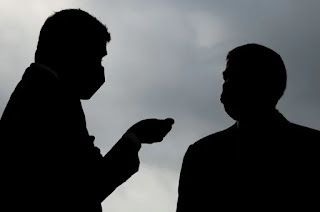(Reuters) - The D.C. bar’s disciplinary office has asked an appeals court to approve its power to negotiate lesser penalties for lawyers when disbarment is the presumptive sanction.
A three-judge panel of the District of Columbia Court of Appeals, the highest local court in city that also oversees attorney misconduct disputes, on Wednesday weighed whether a three-year bar suspension for a lawyer accused of "reckless misappropriation" of client funds was unduly lenient.
Such an ethics charge carries the presumption of disbarment, but in the case before the court, the lawyer, Paul Mensah, negotiated a lower penalty with the D.C. Office of Disciplinary Counsel. The deal suspends his license for three years and requires him to show fitness to practice law if he ever wants to rejoin the bar. Disbarment in D.C. comes with a minimum five-year suspension, and proceedings can take longer to resolve than a negotiated penalty.
"What is the public perception going to be if we say that, 'Here's a lawyer who has engaged in misconduct and is willing to be immediately suspended,'" Hamilton Fox III, the top D.C. disciplinary lawyer, told the appeals panel. "But because we want to go through this process and have him disbarred, he's going to be allowed to practice for two more years. Removing that lawyer more quickly serves the interest of the disciplinary system."
D.C. Court of Appeals Judges Roy McLeese and Joshua Deahl, sitting with Senior Judge John Steadman, considered where and how to draw the lines governing how much discretion the disciplinary office should have in crafting penalty deals.
Fox did not immediately comment on Thursday, and Justin Flint of Eccleston & Wolf, a lawyer for Mensah, did not respond to a message seeking comment.
The panel judges spent the bulk of the hour-long hearing trying to glean the scope and impact of a 1990 decision from the appeals court.
That decision, issued before the D.C. bar had a system of negotiated discipline in place, said reckless or intentional misappropriation of funds should result in disbarment unless there are "extraordinary" circumstances.
"Our court, in dealing with negotiated cases, has always looked at the acceptable range," Steadman said at the hearing. "We have no range in this sort of case, misappropriation of funds, except in exceptional cases."
Mensah, a member of the D.C. bar since 2003, did not contest the claims that he misappropriated client funds in a personal injury matter and a debt collection lawsuit that settled in 2017 for $15,200.
His lawyer was aligned with the recommendation from the D.C. bar's disciplinary office that the D.C. appeals court approve the negotiated punishment.
"This case is the model for what this court wants to set forth for the bar," Flint said. "Knowing that he has a problem with this trust account -- admits to it, owns it, has remorse, hires a bookkeeper, and makes sure that everything is correct."
The case is In the Matter of: Paul T. Mensah, District of Columbia Court of Appeals, No. 20-BG-560.


No comments:
Post a Comment